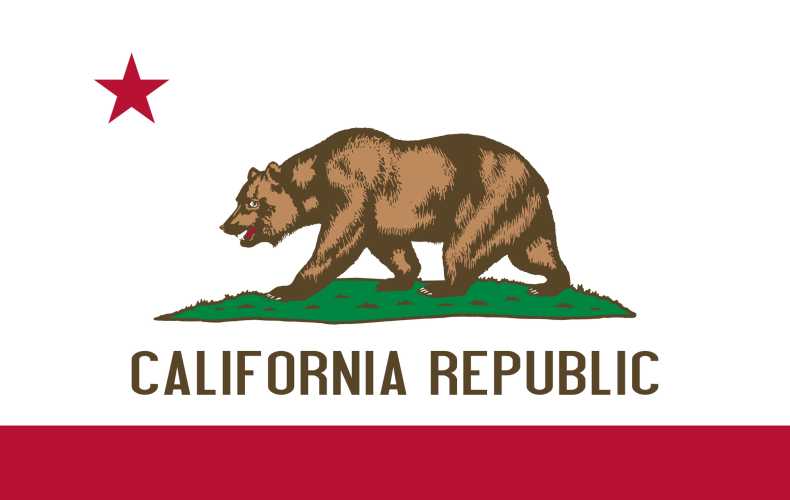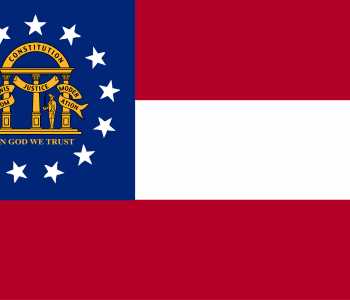California Business License

Interested in starting a business in California? Prospectors have been flocking to the Golden State since the gold rush in 1848. You too can start chasing your entrepreneurial dreams in the land of sunshine and opportunity.
One of the first steps in your journey to starting your new business is to apply for your business license. Below are 6 considerations for you to decide upon before starting your business license application:
1: Tax Registration
Employer Identification Number (EIN): Every employer that has employees must have an Employer Identification Number (EIN). This is also referred to as an Employer Tax ID number. These numbers can be obtained through the Internal Revenue Service, by filing Form SS-4.
United State Internal Revenue Service (IRS) Telephone Number - 1-800-829-4933
Obtaining an Employer Identification Number (EIN)
Employers can apply for the number online.
California (CA) Tax Registration: Any business that operates in California must also obtain more specific numbers, permits and/or licenses, etc. for diverse tax reasons. If a business plans to buy products and resell them or already do, the business must obtain a seller's permit for specific taxes, such as sales tax and use tax.
Other permits might be required as well, for income tax withholding and unemployment insurance tax, for example. Companies can contact the California Tax Service Center for more details about employer tax responsibilities and the registration process.
2: Licenses for Business Owners
Wide-Ranging Licenses for Businesses: Business owners can go to a database, known as CalGold, to find out more about registration requirements, permits, licenses and more. CalGold has a comprehensive collection of information, as well as URLs and contact information. Your business license is also referred to as a business tax certificate. And in California, the process to get your license depends on your city.
3: Obtaining Permits Locally
Business owners can visit their local government office to obtain your local permits. This is usually within the city limits in which your business is established. Check with your city hall to see if there are specific licenses or permits required for your location.
Each town/city might have different requirements and guidelines. The most well-known permits and licenses a business might need are as follows:
- Permits
- Alarm
- Building
- Health
- Occupational
- Signage
- Tax
- Zoning
4: Incorporation Filing
Another consideration you will need to make before filling out your business license application is what type of business you want to start. Your business entity is the basic structure of your business. Will you be flying solo in your new business? Then you will want to start a sole proprietorship.
Corporations, partnerships, Limited Liability Companies (LLC), or non-profits are required to register with the state of California. If you will have employees you will need to file for a Federal tax ID number. This will allow you to use this number on your business registration rather than your personal social security number.
Applications and Forms can be located here:
Company - Sole Proprietor -- Registration - Applications/Forms
Sole proprietors are not required to register with the state where the business operates. Yet, if the business operates in California (CA), sole proprietors that want to operate a company under a title that is not the same as the business owner's legal name is required to file a "Doing Business As" (DBA) (see the following step for more info).
5: Doing Business As (DBA)
Filing for an invented name permits a business owner the development of a company title that is different from the owner's legal name. By creating a new name for the business, it is referred to as Doing Business As (DBA). Using a fictitious business name has many benefits, including keeping your personal information personal.
Sole proprietors that want to operate a company under a fictitious title are required to file a DBA with the county registrar. This is typically located at the County Clerk's Office. A corporation, partnership, and LLC can elect to do the same.
6: Business Owners/Employers - Requirements
There are several requirements for small business owners in California. Below are a few of the most common:
Withholding Earnings Taxes: The Internal Revenue Service (IRS) requires business owners that have employees to keep documentation of employment taxes for approximately four years. A summary of employer duties about withholding taxes (Federal) is provided by the IRS. The summary (publication) is referred to as the Employer's Tax Guide.
The form for income tax withholding (Federal) is Form W-4. Every employee is required to fill out a form known as an exemption certificate when each employee is hired, generally the first day they start working. The business owner is then obligated to submit the form (W-4) to the Internal Revenue Service (IRS), where the employee and his or her information (name, date of birth, social security number, etc.) will be verified.
Earnings and Tax Statement - Federal: Form W-2 (referred to as the Federal Wage and Tax Statement) is used for Earnings and tax purposes. Each employer is required to report this information to the IRS each year. They report each employee's wages and taxes that were withheld from each paycheck.
The IRS mandates that employers report this information by January 31, annually. The employer then sends Copy A of the W-2 to the Social Security Administration (SSA), so they can document each employee's earnings for the prior year. Other instructions regarding filing Form W-2 can be located on SSA's website.
Taxes (State): Ta withholding (State Tax) requirements might differ, contingent on where the business is established. Because laws differ in each state, you might want to go to your local tax department and inquire about this topic there. California companies must register their business with the Employment Development Department (EDD) before they can make tax payments and file reports.
Form I-9 - Employee Eligibility Verification form: All employers are required, by Federal law, to verify that each employee that is hired (after November 6, 1986) has a legal work status (is eligible to work in the U.S.). Within three days after hiring an employee, the verification process must be done. It must be filed for all employees, legal residents, permanent or temporary resident aliens, etc.
Employers can do that by filing the I-9 form. Employers can download the Employment Verification Form - Form I-9
I-9 Form - Filing Instructions: Employers - Handbook
New Employee Hiring: Requirements: Each employer must affirm each new-hire, and employees that previously worked and are re-hired, with a twenty-day time-frame after an employee is hired. The details ought to be given to the State of California's New-Hire Reporting Program.
Rules Regarding Insurance: California requires companies to have specific kinds of insurance. Two of those kinds of insurance are Disability Insurance (state) and Unemployment Insurance (state). The disability coverage also includes paid family leave.
Two other items must be reported as well - payroll taxes and income tax withholding. The Employment Development Department manages these items.
Disability Coverage: When an employee gets hurt or becomes ill (not work-related) and becomes temporarily disabled, temporary disability coverage offers him or her an income (known as insurance benefits).
Business owners that have employees are obligated to take taxes out of employees' earnings and report the tax withholding to the state. Additional details about diverse types of disability coverage can be located on your state's disability insurance website.
Unemployment Coverage Taxes: Companies must pay unemployment payments to each employee who meets the unemployment criteria. Additional details about this insurance and the benefits on California's Employment Development Department (EDD) website - on the Unemployment page.
Worker's Compensation Coverage: When/if an employee is hurt while working, he or she can file a Worker's Compensation claim. There is a list of FAQs about this type of insurance, which can be obtained via the California (CA) Department of Industrial Relations (DIR).
Getting Started
Starting a new business can be very gratifying. However, it can also be very overwhelming. Use the information in this article to help navigate the process a little easier. The chamber of commerce is here to help you succeed in your new business venture.
Getting your California business license puts you one step closer to realizing your entrepreneurial dreams. From San Diego to Sacramento, small business owners are doing business successfully all over your state. Join them by starting your new business today.
FAQ
Are you required to have a California (CA)business license?
California requires that you have a general California business license if you own any type of business. This applies even to California small businesses or home-based businesses that do not earn a lot of money. Any business in California, regardless of how small, must apply for a license.
What is the process for obtaining a California business license?
How can I obtain a California business license?
You need to fill out and submit an application form to apply for a California business license. You can get the forms from the city hall or offices of your city. You can either download, print, and mail them or hand-deliver them to the city office. The fee is usually between $50 to $100. It all depends on how big your business is and how many employees you have. California cities often offer small business licenses, permits, or home-based licenses for those who need them. Online applications are now available in many larger cities. It is easy to get a California business license. Although most cities don't offer a California business license verification search or California business license lookup service online, you can still apply for a new license over the internet. Click the link below to visit your city's website for business licenses.
What information is required to complete the State of California Business License Application?
Although each city has its own business license form and California business licensing requirements, they are generally very similar. The following information will likely be requested:
- Business name
- Business Address
- Mailing address (if it is different from the main address)
- Phone Number
- Type of business (LLC Corporation, Corporation, Partnership, Sole Proprietor, etc.)
- Federal Tax ID Number (Employer Identification Number, or EIN) obtained directly from the IRS. If you are a sole proprietor, this is your social security number. This number is required for California sellers who sell goods. It can be used to obtain a business license.
- Name, address, and phone number of each owner
- Driver's license number
- Type of business to be run
- Number of employees
- Expected Annual Sales
Many cities have an annual fee that must be paid each year. The fee for some cities is fixed, while others are dependent on sales revenue. It is more costly to do business in a city than elsewhere, but the fee is usually a small percentage. While many cities allow you to pay with a credit card, most require that you send a check. Within a few weeks, the city will mail you a type of certificate or license with a California business license number.






